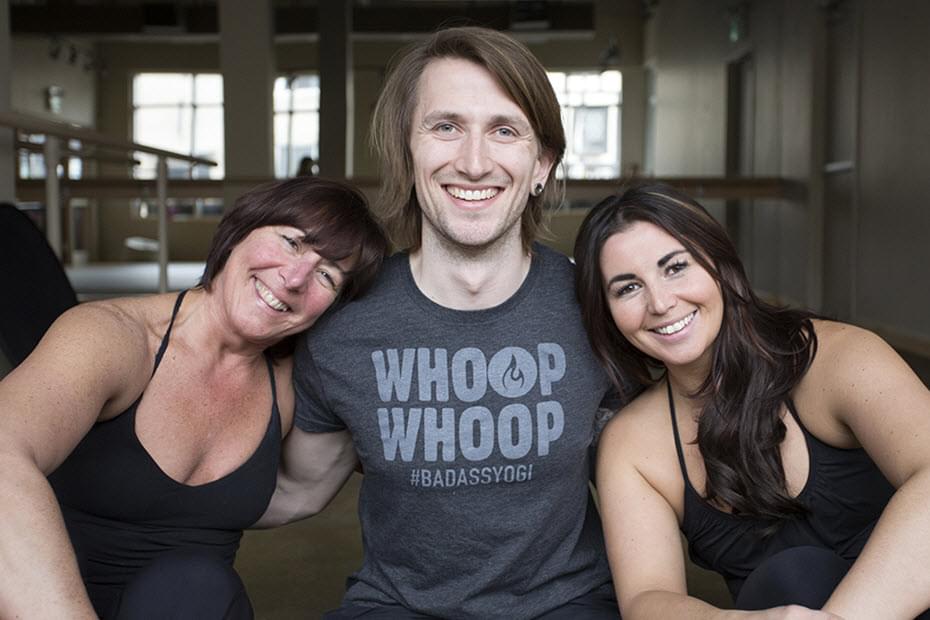This is part of a nine-part series following individuals as they embark on the big life decisions that change the way they see the world.
Sometimes it takes a while to find your true calling in life.
After years of being a movie theatre owner in the southern United States, Barbara Tranter is returning to her hometown of Niagara-on-the-Lake, Ont., and now she’s making movies instead of showing them.
It’s the realization of a passion to become a filmmaker that Trantor says was sparked long ago. (She puts her age at “older than 60, younger than 66.”)
“I started working at the Shaw [Theatre] Festival [in Niagara-on-the-Lake] when I was 13. I’d meet sophisticated actors who came into town, and one of my grandfathers was a well-known photographer in the area,” she says.
Trantor became involved in the Canadian movie business throughout the 90s as a producer with her then-husband. “But in 2008, the bottom fell out in terms of financing,” she says.
That’s when they decided to open a movie theatre in East Aurora, New York and then another in Charleston, South Carolina. Though they had never lived there, they had heard that Charleston was making the transition from a sleepy outpost of the Old South – the Civil War actually started there – to an artsy tourist mecca.
The three-screen movie theatre, which they opened in 2009, did well and is still running. But after her divorce in 2013, Tranter wanted to come back to her childhood home – and more importantly, she wanted to make movies.
Now, she’s made 12 short documentaries and one full-length, called Mayor, which she completed earlier this year. The film’s subject was Charleston’s Mayor Joseph Riley, a liberal Democrat who served 40 years and helped navigate the city from its troubled, segregationist past to a vibrant, more attractive present.
The film is already being shown on regional public television in the U.S. southeast and is scheduled to be aired nationally on PBS in 2017.
“The movie is a big breakthrough for me and at my age I’m happy to have that,” she says.
Now Trantor is working on a film about Harriet Tubman, the American abolitionist heroine who spirited fleeing slaves to Canada before the U.S. Civil War and whose picture will be on new U.S. $20 bills.
Pursuing this new vocation late in life has been a natural change for her, she adds.
“It’s really fun to make films and I think I’m smarter than I was when I was younger,” she says. “Back in the day I might have put in more and made something much more watered down, and today I feel I can hone in more. I want to shoot less and do more with it.”
She didn’t change her life for the money, adding, “Life is whatever you make of it.”
The best advice she received about pursuing a life change was a story she was told by a chaplain in Charleston who works as a crisis counselor.
“’Don’t be afraid to change your life,’ she told me,” says Tranter.
“’Think of it like you’re in a trapeze act. You’re going along and you know the routine and all of a sudden you have to let go of that trapeze. So you’re in mid-air and you might see another trapeze. But you’ve let go of your old, friendly trapeze and you still have to reach for the next one,'” she says.
“’It feels like you have nothing to hold onto. But the space between where you are when you let go and where the new one that you’re going to grab on is located – that’s the space where you’re going to grow the most.'”
This article originally appeared in the Globe & Mail in October 2016.
More from the Life Changes Series:
This article is intended as general information only and is not to be relied upon as constituting legal, financial or other professional advice. A professional advisor should be consulted regarding your specific situation. Information presented is believed to be factual and up-to-date but we do not guarantee its accuracy and it should not be regarded as a complete analysis of the subjects discussed. All expressions of opinion reflect the judgment of the authors as of the date of publication and are subject to change. No endorsement of any third parties or their advice, opinions, information, products or services is expressly given or implied by Royal Bank of Canada or any of its affiliates.


































